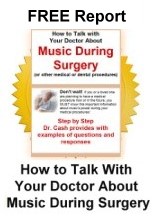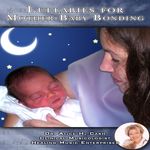Here’s a great new article from Scientific American:
There are very few activities for which your birthday suit and a three-piece suit are equally appropriate attire. Music is one of them.
Belting an improvised ditty alone in the shower and performing Handel’s “Messiah” on stage with a full choral ensemble and orchestra both qualify as “song.” Simple or intricate, practiced or spontaneous, individual or collective, highbrow or honky-tonk—music covers the gamut. And though instruments aren’t instrumental, they are welcome and multifarious. Bells, drums, strings, woodwinds, harps or horns can certainly spice up a tune. (Though a Stradivarius may not survive a shower.)
But music’s broad scope doesn’t stop with its production. More fascinating than how people make music (and greater mysteries, perhaps) are why people make it, why others listen and how a beat of any sort can have such a profound impact on the body and the brain.
Coos and ahs exchanged by moms and babies around the globe may form a musical conversation that lays the groundwork for language, some scientists now propose. That notion joins others—including the desire to impress mates and the drive to build social bonds—in suggesting an evolutionary source of chanteys, dirges and ballads. Others see music as a pleasing diversion, and research shows that emotionally charged music—whether moving a person to tears of joy or calling forth memories of a failed romance—appears to activate the brain’s reward circuitry. And while listening to music brings on an emotional rush, playing music may provide a mental boost. It turns out that musical training has benefits to the tune of improved under standing of grammatical rules and sharper auditory perception.
Though music’s tendency to get charged with cultural, religious and emotional meaning may complicate things for scientists seeking its roots and benefits, it’s that same tendency that makes pursuing the “what,” “why” and “how” of music worthwhile.








No Comments so far ↓
There are no comments yet...Kick things off by filling out the form below.